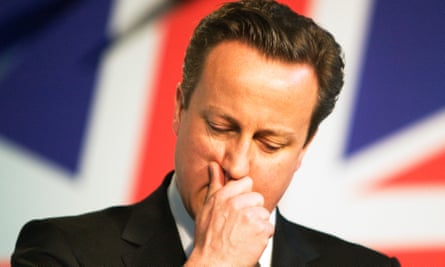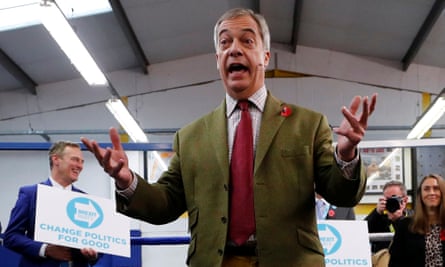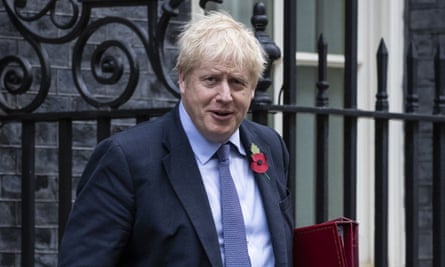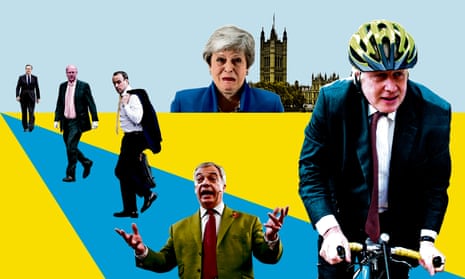I didn’t think twice when I was asked to become the Guardian’s political sketch writer. Not only was it a huge honour to follow in the footsteps of so many great writers, such as Norman Shrapnel and Simon Hoggart, but what better job could there be for a satirist and lifelong politics nerd? Yet in February 2014, I imagined it would be a niche slot. Centre-stage, certainly, for the big set pieces of elections and budgets, but otherwise strictly for obsessives like me who could find humour in exchanges over proposed improvements to the Kettering bypass at transport questions on a Thursday morning.
Yet almost from the day I started, it was as if our politicians had chosen to overdose on psychedelics. The surreal rapidly became the all too real. Sketches that used to be comedic diversions, lighthearted puncturing of pomposity, incompetence and duplicity through exaggeration and flights of imagination, became almost straightforward reportage. I didn’t have to make anything up, I just had to more or less write down what people said and claim the laughs for myself. A transcription service, if you like.

The fun really began with David Cameron winning a majority in the 2015 general election. It was a victory he had not anticipated, and that will go down as one of his biggest mistakes because it obliged him to make good on his commitment to the Eurosceptics in his party to hold a referendum on the UK’s membership of the EU. It was also something that “call me Dave” went about with his typical slapdash panache. Rather than waiting until the end of 2017, as he had promised, to give him time to negotiate the best possible deal with the rest of the EU and make sure voters were fully aware of the complexities, Dave went early, in June 2016, because he thought remain was sure to win.
Brexit has changed everything. It saw off Cameron – he was gone the day after the referendum, having promised to stay on if he lost – and brought in Theresa May. The Maybot rose without trace, having won a leadership election by virtue of saying nothing throughout her campaign and simply waiting for her rivals to crash and burn. She mumbled “Brexit means Brexit” and “strong and stable”, committed herself to a hard Brexit and then lost her majority by calling a snap election. Her subsequent humiliations, often self-inflicted, were fun to sketch. But somehow painful, too. Brexit proved time and again that it could make fools of fools.
The cast list of Brexit grotesques grew steadily larger by the day. There was David Davis, the Brexit secretary, who was out-thought by the EU at every turn, and whose watchword was to never make any preparations. That way, you could never allow the enemy to second-guess you.

Dominic Raab, his successor, was the man whose barely contained rage is only matched by his fear that one day the five bodies floating upside down in the Thames will be identified. And Stephen Barclay, the current Brexit secretary, who was carefully selected for the job because he really does know nothing.
Then there was Chris Grayling, the transport secretary under May, who awarded a ferry contract to a company with no ferries and whose time as cabinet minister cost the country £3bn. We could have paid him £1bn to stay at home doing nothing and still had money left over to build two hospitals. There is Jacob Rees-Mogg, the idiot’s idea of a thinking man, and Mark Francois, the exploding molehill. And, of course, Nigel Farage, who has returned to the fray to lead the Brexiters Against Brexit 12-step group. Then there is Boris Johnson himself, a byword for untrustworthiness, duplicity and laziness who is now our prime minister. Some countries have all the luck.
“Please do not waste this time,” said Donald Tusk, moments after the UK had been granted a second Brexit extension in April this year. His voice was plaintive and mocking at the same time, but not even the European council president could have predicted to just what lengths Britain would go to avoid taking his advice. May resigned and the country was forced to endure a prolonged Tory leadership contest; one in which Rees-Mogg declared: “If we don’t leave by 31 October, there will be no Conservative party left. Only Boris Johnson has the intellect and breadth to do this.”
Within days of Johnson becoming prime minister, parliament went on a six-week summer recess. When it returned in September, Rees-Mogg’s hero promptly tried to send it back on holiday again for five weeks, insisting that there wasn’t much for it to do; that what it had done – notably, passing the Benn act to rule out a no-deal Brexit – was profoundly unhelpful and that he needed plenty of time to prepare his legislative programme for a new Queen’s speech. It was a prorogation that the supreme court ruled to be unlawful. Misleading the Queen over the suspension of parliament wouldn’t have been the first time he had lied to a woman. And it almost certainly wouldn’t be the last.
For several weeks thereafter, Johnson’s main ploy was to talk up the possibility of a no-deal Brexit – he never made clear how he proposed to get round the Benn act – and insist he would rather “die in a ditch” than ask for another Brexit extension. Then, with the clock ticking down to 31 October, Johnson miraculously swivelled through 180 degrees to negotiate a new Brexit withdrawal agreement with the EU; one that contained elements May had rejected 18 months earlier and that Johnson himself had previously said no UK prime minister could accept on the grounds that it risked breaking up the union.
This deal passed its second reading in the Commons with the support of the hardline Tory Eurosceptics of the European Research Group, who had decided they weren’t as bothered about the union as they had imagined, and 19 Labour MPs in leave-voting constituencies, who were now desperate to pass any withdrawal agreement – even one that most economists reckoned was markedly worse than the May deal they had voted down three times. Go figure.
No matter. Within hours of the bill passing, Johnson chose to withdraw it because MPs were demanding longer than three days to scrutinise the most important piece of legislation in decades. The man who had described himself as the Incredible Hulk was now the Incredible Sulk. While Johnson tried to ignore the fact that 31 October had come and gone, the EU quietly granted the UK a further extension until the end of January 2020. The textbook time-wasting was complete. Tusk must be so proud of us. Classic Boris. Classic Dom.
Brexit has toxified everything. Lying – either barefaced or by omission – has now become the default setting for many politicians of all parties. Winning is all that counts; the means has become a secondary consideration. The country feels more divided than it was in 2016. For all her many faults, there was an inherent integrity to May’s incompetence; she was making all the wrong calls for all the right reasons. But with Johnson, we are in an ethical wild west. He doesn’t really believe in anything except himself. He is the career sociopath for whom other people are mere satellites orbiting a never satisfied ego.

It is not my job to be anyone’s cheerleader. Which is not to say there aren’t politicians I admire. There are and I try to give them a voice. But good satire requires holding the powerful to account, and in the election campaign, truth will be at a premium. The Tories will promise billions to public services that they have starved of cash for the past nine years and campaign to “get Brexit done”. Some hope. Passing the withdrawal agreement is only base camp towards negotiating a free trade agreement with the EU. They will also swear blind they will maintain EU workers’ and environmental standards even though they have specifically removed them from binding legislation. The opposition will tell their own lies. Trust in politics and politicians will continue to be eroded.
How this election campaign will end is anyone’s guess. Having called the last three ballots in 2015, 2016 and 2017 wrong, I am reluctant to stick my neck out. A Tory majority looks the most likely, but a hung parliament with either a minority Labour or Tory government is still more than possible. The only thing guaranteed is that, whatever happens, we’ll still be arguing about Brexit for years to come. My first collection of sketches I, Maybot was conceived as a stand-alone book. This next one, Decline and Fail, could well be the second in a trilogy.
John Crace’s Decline and Fail: Read in Case of Political Apocalypse, is published by Guardian Faber. To order a copy go to guardianbookshop.com or call 0330 333 6846. Free UK p&p over £15, online orders only. Phone orders min p&p of £1.99.

Comments (…)
Sign in or create your Guardian account to join the discussion